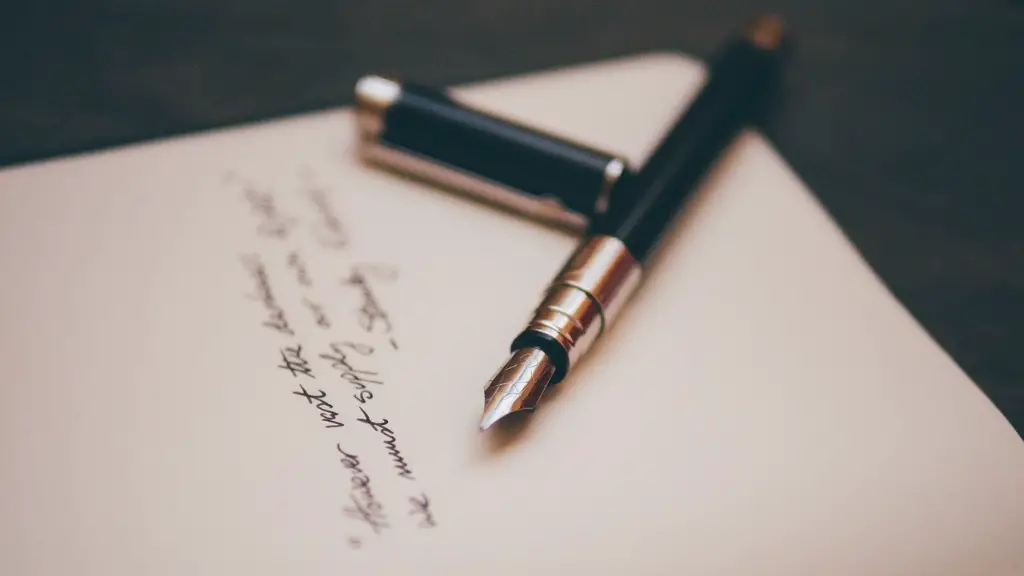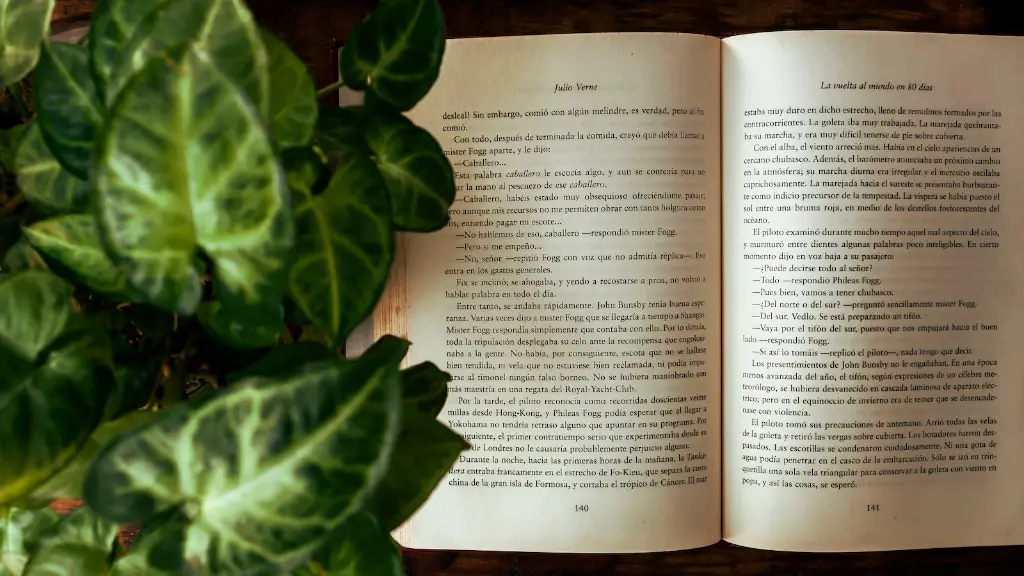The popularity of poetry has increased significantly in the last few years. More and more people are getting interested in the craft, and many are beginning to write their own poetry. But how do you know if your poem is any good? It is not always easy to tell, but there are some things that can help you evaluate the quality of your work.
The first thing to look at when assessing your poetry is the structure. Good poets often use structure to emphasize particular words or ideas, and shape the poem in a way that helps it flow. Look out for well-crafted rhymes and stanzas, and be sure to differentiate the types of verse. Poets often try to build harmonious rhythms for their poems, and if the rhythms you produce do not flow well, it could be a sign that the poem needs further work. Proper enjambment, rhetoric, and other concepts from poetry theory can also be useful when considering the overall structure of a poem.
The second thing to consider is language. Pay attention to the words you are using – are they vivid and expressive, or are they overly simplistic and without emotion? Good poetry often relies on a careful selection of words in order to evoke emotion and communicate ideas. To be successful, the language must be used to build powerful images in the reader’s mind. Avoid cliches and employed the use of metaphors and symbolism in order to add depth and complexity to your work.
The third factor to consider is the poem’s message. Even the best poetry can be let down by a lack of meaningful content. To avoid this, think about the theme or purpose of the poem and the central message you are trying to convey. In order to convey your message effectively, you must be sincere and honest in your expression. People can usually tell when a poet is attempting to be profound and finding only hollow words as a result.
Another factor to consider is the audience of your poem. Who are you writing the poem for? Knowing your audience can help you tailor your poem and pick the most appropriate language and structure. You can also use the poem to build up a rapport with the reader, so they will be more likely to connect with it on an emotional level.
Finally, no matter how well you think your poem is written, it is a good idea to get feedback from other poets. Sharing your poem with your peers and getting their honest opinions can help you refine and revise your work. This can be invaluable as it can provide you with perspective into how other people interpret your poem, and what needs to be improved.
Know Your Medium
One important aspect of considering if your poetry is good is knowing your medium and it’s purpose. Poetry can take many forms, for example, some poems tell narratives, some criticize society, and some evoke emotions. All of these forms have their place in poetry, and knowing which kind of poem you are trying to write can help you focus on the right elements.
Consider what medium you want to express your poem in – should it be in free-verse, or should it take the form of a sonnet? Are there any particular imagery devices you want to play with, such as personification? Knowing these things can help you craft a narrative or express yourself in a more structured manner, depending upon the desired effect.
Whatever kind of poem you are looking to write, it is important to understand the medium you are writing in, and be aware of any literary conventions that may apply. A good poet should know the fundamentals of the genre being explored, and use them to create a work of art.
Make Connections
Many poems are driven by emotional content, and making connections can be a powerful way to bring a poem to life. Using real life anecdotes and personal experiences can help to draw the reader in and create a connection between the poet and the poem.
To build these connections, the poet should draw on real experiences and use them to enhance the message of the poem. These experiences can be from the poet’s own life, or they can be observed moments or feelings that are being expressed in the poem. Whatever the case may be, making connections can be a very effective way to create a meaningful poem.
When attempting to make connections, it is important to remember to be honest and sincere. Focusing on the real emotion of a situation can help create a powerful link between the reader and the poet and make the poem truly memorable.
Follow New Streams
Being creative is one of the most important things a poet can do. Coming up with new ideas and being willing to explore new and unusual topics can help make a poem more exciting and engaging.
When coming up with ideas for a poem, it can be tempting to stick to a safe, familiar theme, but this can often limit the creativity of the poet. Thinking outside of the box and looking for unusual connections or surprising perspectives can make a poem stand out from the crowd.
Experimenting with different styles and techniques can also be a great way to explore new ideas and get away from the familiar. Incorporating elements of other genres into a poem can be a great way to add variety and surprise to a piece.
Of course, this doesn’t mean that you should completely abandon the things that you are comfortable with, but being willing to try something new can often make all the difference in a poem.
Pay Attention to Details
When writing a poem, the little details can often make all the difference. Paying attention to the finer aspects of a poem can help give it that extra something that sets it apart from other works.
For example, when writing a poem, consider the punctuation and the use of line breaks. These can have a huge effect on the overall flow and readability of a piece, and should be considered carefully. Ensuring the punctuation is correct and consistent can help create a sense of harmony and rhythm in the poem.
Similarly, choosing the right words can be key to creating a powerful image. Avoiding cliched words and phrases offers an opportunity to express yourself more creatively and help create a unique atmosphere. Unusual words and nuanced language can help create a unique atmosphere and add to the overall power of the poem.
These details might seem insignificant, but they can be the difference between a good and a great poem.
Study and Practice
One of the best ways to make sure your poetry is up to scratch is through hard work and dedication. Just as with any other art form, dedication and practice are essential.
Studying the works of classic poets is a good way to learn about technique and composition. Great poetry usually has timeless themes that can often be found in the works of classic poets such as Shakespeare and Dickinson. Paying attention to how these poets use structure and language can help provide valuable insight into the craft.
Practicing is also important. Setting aside time to write and hone your skills can help you develop your technique and prepare you for writing great poetry. Keeping regular journals, experimenting with different forms and being open to feedback are all great ways to improve your poetry.
By studying and practicing, a poet can go a long way to improving their craft and writing great poetry.





